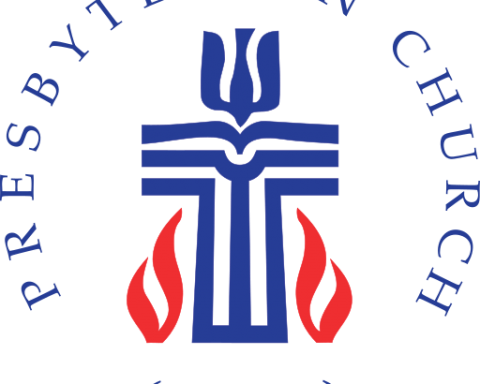The call to live out our values in the world is nothing new to the members of The First Presbyterian Church in the City of New York. Our church was instrumental in the nomination of the first Black moderator of our General Assembly in 1960. Our members participated in protests against the Vietnam War in the 1970s. We have been early and steadfast supporters of the LGBTQIA+ community. Harry Emerson Fosdick’s sermon, Shall the Fundamentalists Win?, was delivered from our church’s pulpit more than 100 years ago. Arguably the most famous sermon of the 20th century, Fosdick’s sermon exemplifies the open-minded, science-friendly, and tolerant leadership to which we still aspire today.
One of our current callings is to respond to the growing cry of the earth and her most vulnerable communities. The destruction wrought by the climate crisis—with its droughts, floods, wildfires, excessive heat, and other severe weather—has never been clearer, nor has the call for environmental justice. It is well documented that the climate crisis disproportionately harms those least responsible for it, including youth, low-wealth communities, those affected by racism, and Indigenous peoples.
This concerns us deeply. We are committed to caring for “the least of our siblings” (Matthew 25:40) around the world, and to serving as faithful stewards of God’s earth. That is one reason our church has begun divesting its endowment from the fossil fuel industry. We also know we are not the first church to do so, and we follow the leadership of other congregations and denominations who have already done this. We also know that at this point in the climate crisis, divestment from fossil fuel companies is no longer as radical as it was a decade ago.
However, we believe it continues to be an important step among many for people of faith–and especially people of faith with at least some access to wealth–to take.
So how did we get here?
In 2018, we formed an Earth Care Action Group. In 2019, we became certified as a PC(USA) Earth Care Congregation. In doing so, we pledged to “be mindful that our personal and collective actions can positively or negatively affect our neighborhood, region, nation and world.”
Our Earth Care Action Group works on issues as hyper-local as caring for the trees on our block, to the neighborhood level by organizing neighborhood clean-ups, and at the city level by advocating for climate-friendly legislation, and globally by advocating for the US to rejoin the Paris Accords. We include reverence for the earth in worship, and we helped our church commit to stop buying single-use plastic. We also encourage our members to live gently on the earth in their personal lives and share weekly earth-friendly tips and information in the church e-newsletter. We make the Earth Care ministry of the congregation joyful, fun, and meaningful to participate in.
As a church, we understand that our individual actions matter in our community and to God. And yet, we also know that individual actions alone—reducing plastic use, eating less meat, flying less, etc.—will not curb the climate crisis in a meaningful way. We must act collectively and strategically to move at the speed required to curb the climate crisis.
So the Earth Care Action Group began discussing whether God was calling us to divest from fossil fuels. We decided to form a working group that would study the fossil fuel divestment movement. For over a year, we spoke with members of other churches, advocates, activists, environmentalists, pastors, and investment professionals. We met, laughed, argued, and prayed together.
We talked to our pastors about why this was important, and with their support, we also talked with members of our board of trustees. For us, it was important to talk with the trustees, understand what they thought, and share our hopes for divestment, because they are the ones in our church’s structure who have the power to decide whether to divest (specifically, the investment committee of the trustees has that power).
We nominated members of the Earth Care Action Group who had the right expertise to join the church’s board of trustees, and they were elected. Once the investment committee of the board began discussing divestment, it didn’t take long. At first, our church’s financial advisors were hesitant about divesting, but we continued to engage and share why we knew this was the right choice for us. And our advisors became partners in helping the investment committee figure out how to begin divesting.
The trustees have fiduciary obligations to make decisions that support the church and its mission over the long term. In terms of market performance (i.e. simply making money), fossil fuel was the worst performing industry for the decade preceding the Russian invasion of Ukraine, and many have observed that the current record profits of the fossil fuel industry are in fact due to the war in Ukraine. Given the long term need to transition away from fossil fuels—together with the repugnant notion of profiting directly or indirectly off the war in Ukraine—the investment committee chose to begin moving money out of the fossil fuel industry sooner rather than later.
Ultimately, the decision to divest from fossil fuels is both a financial and a moral one. “Throughout the process, what we all had to confront – the Earth Care group, the Session, and the Trustees – was that, as a church, we had signed the Earth Care Pledge and had become and Earth Care Congregation. So we had to weigh our fiduciary responsibilities with our moral imperative to be stewards of God’s earth, and have our actions in managing our portfolio match our pledged commitment. Fortunately, our research showed that both our financial and moral concerns could work in concert.”
This work built on our congregation’s legacy of being a church committed to social justice. We celebrated our initial steps into divestment this week in our 2023 Earth Care Sunday worship service where we invited Bill McKibben to preach. We also hosted a panel with Bill and other leaders in our city and denomination entitled “Saving the Planet: An Ethical Imperative.”
This work is not done, but beginning to divest from fossil fuels has been an important step in our commitment to being stewards of God’s earth and of our financial resources. Our prayer is that, just as we were inspired by those who came before us in this movement, we can be an inspiration and give practical support to other congregations considering divestment.
Written by the Earth Care Action Group at the First Presbyterian Church of New York City






Unbound Social